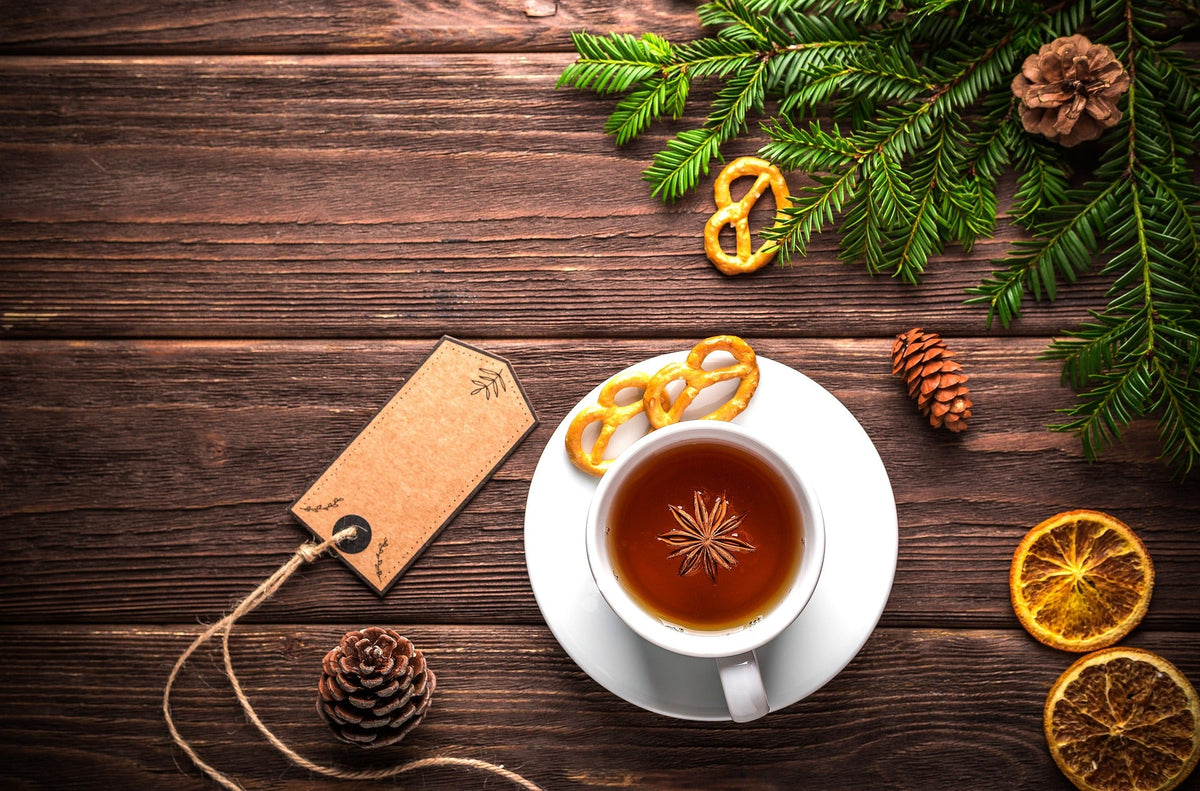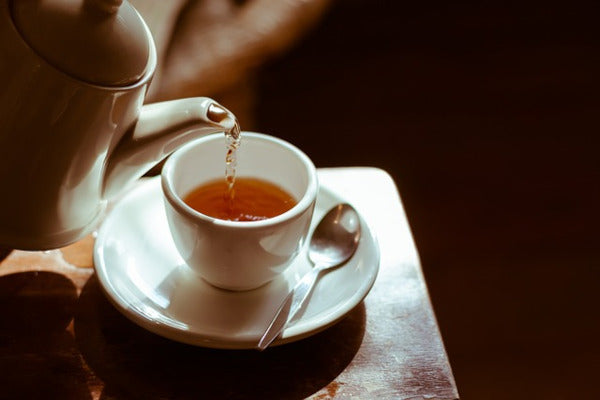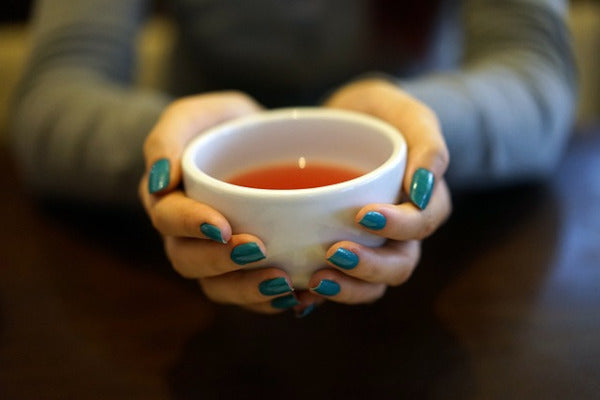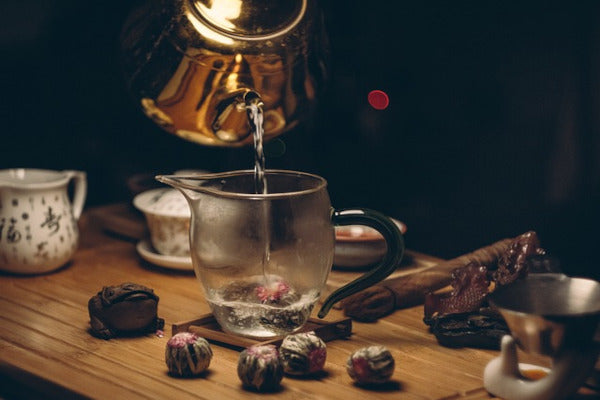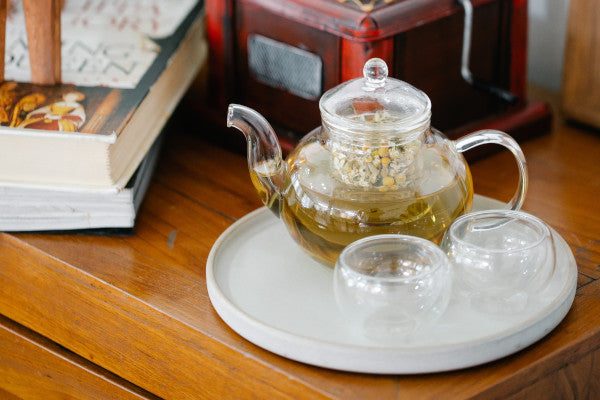It originates in southwestern India, specifically in the mountains of the same name, also known as the Blue Mountains. It is a very aromatic, delicate tea with little astringency. It is harvested during the monsoons and is picked during both the cold and dry seasons. Here, you'll learn about Nilgiri tea.
This black tea isn't yet widely available in the West, but it's slowly making its way. It's a tea with a certain intensity (but not too much), full-bodied, and has a pleasant texture. Its aroma can be distinguished by several notes: mint, lemon, dried fruit, licorice, eucalyptus, and lemon. It's very pleasant and refreshing on the palate.
At Tétique, we are proud to offer the finest selection of organic black teas that will captivate you with their exceptional flavor and quality. Our range includes options like the classic English Breakfast black tea , perfect for starting your day with energy and a balanced flavor.
If you're looking for something more aromatic and comforting, we invite you to try our cinnamon black tea , a combination that blends the depth of black tea with the warm touch of cinnamon. And we can't forget to mention our popular chai masala black tea , a blend of spices that will transport you on an exotic journey of flavors and fragrances.
We strive to provide you with the highest quality organic black teas from sustainable and environmentally friendly plantations. Each cup of tea you enjoy will surprise you with its richness and authenticity, offering a unique experience for black tea lovers.
How Nilgiri tea is produced
Nilgiri tea is grown at altitudes ranging from 1,000 to 2,500 meters. The area where it is produced has the ideal conditions (climate and soil) for the production of its plant, Camellia sinensis .
This tea can be harvested at any time of year, unlike Assam and Darjeeling teas. Therefore, the variety of this black tea in India surpasses that of other teas. It's worth noting that, although it can be harvested year-round, the best harvest occurs between December and March. The highest grade of tea is Orange Pekoe.

During these dry months, the tea produced tends to be intense and flavorful, but also expensive, and is the tea that is exported. The remaining tea is blended with other spices to produce Masala chai.
The tea then undergoes the common oxidation process for black teas . The leaves are evaporated, and their enzymes react with oxygen, changing their color and organoleptic properties. It is during this phase that their characteristic flavor develops.
At the end of the process, the leaves are treated manually or mechanically. Lower-quality teas follow the traditional CTC method, while higher-quality teas are hand-rolled.
Benefits of Nilgiri Tea
Nilgiri tea has a number of health-promoting compounds, including caffeine, tannins, alkaloids, theobromine, and theophylline. The main ones are:
- The benefits of black tea are many. It prevents aging. Its antioxidants prevent cellular oxidation caused by free radicals, which are responsible for tissue damage, thus delaying the aging process.
- It aids digestion. Nilgiri black tea is good for a full stomach, as it aids digestion and cleanses the body. It also contains tannins that help reduce inflammation and prevent intestinal pain.
- Controls diabetes. Its phenolic compounds help control blood glucose, making it excellent for diabetics.

- Helps with weight loss. Drinking black tea regularly (for at least three months) helps with weight loss because it speeds up metabolism. This is said to be due to the action of caffeine and its high antioxidant content, especially flavones.
- It cares for your skin. It's excellent for combating acne and oily skin. To do this, prepare the tea and, once it's warm, apply it with a cotton ball to the desired area of skin. Let it sit for a few minutes and then wash it off.
- Protects the cardiovascular system. Containing flavonoids, it protects the cardiovascular system, preventing plaque buildup in the arteries.
- Prevents cancer. Thanks to catechins, it helps prevent cancer by attacking tumor cells. All these properties of black tea add to the delicious taste of Nilgiri tea.
Contraindications of Nilgiri tea
Among the contraindications are the following:
- It is not recommended for children under 12 years of age to drink it.
- Not suitable for pregnant or breastfeeding women, as it contains caffeine.
- People with high blood pressure should not consume it, because this black tea increases blood pressure due to its high caffeine content.
- People with iron deficiency should be cautious, as it contains tannins and reduces the absorption of this mineral.
At Tétique, we care about providing healthy options for everyone, including children and pregnant women. That's why we also offer a variety of safe and delicious infusions that you can enjoy without worry.
Our herbal infusions are carefully formulated with natural, selected ingredients, free of caffeine and other ingredients that could harm the health of children or pregnant women. From fruit infusions to smooth herbal blends, we have options that satisfy the most demanding tastes and provide moments of relaxation and well-being.
How to prepare Nilgiri tea
If you're lucky enough to find loose-leaf Nilgiri tea, the first thing you should do is pick up a wide teapot. The leaves should open up, so there should be plenty of room to easily release their essential oils.
Boil the water and then turn it off. Then, add it to the teapot, adding one teaspoon for every cup of water. Let it steep for about 5 minutes to release its nutrients. Keep in mind that the longer the leaves steep, the stronger the tea will be.
And that's it, you have your Nilgiri tea. Did you see how easy it is to make?

Differences with other black teas
The most similar Indian tea varieties are Assam and Darjeeling. There are many differences from Nilgiri tea , especially in terms of where it's grown. Remember that Nilgiri tea is produced in very high altitudes.
- Assam tea has the most intense flavor and is usually drunk at breakfast. Nilgiri tea, on the other hand, is more delicate and intense. When served, it has a coppery color, little astringency, and is not as dark.
- Darjeeling tea is less intense than Assam tea, but its aromas are different. Derjeeling has a vegetal and somewhat fruity note, while Nilgiri has hints of lemon, eucalyptus, or mint.
- As for the areas where they are grown, all three have large areas, which are what give them the richness and nuances they possess.
At Tétique, we specialize in high-quality black teas . We are proud to offer a wide selection of black teas from the finest plantations around the world.
Whether you own a restaurant, coffee shop, or specialty store, we can provide you with our high-quality black teas. Our commitment to freshness, authenticity, and customer satisfaction distinguishes us as a trusted supplier of black teas.
Trust Tétique as your black tea supplier and surprise your customers with the best options available on the market. Discover the wide variety of black teas we offer and delight your customers with a unique experience with every cup.


